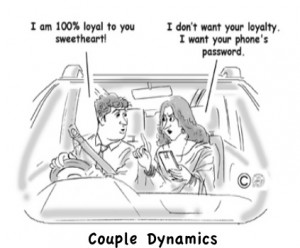Growing up, we formed opinions based an ideal templates constructed by our scriptures, moral-science class stories, textbooks, folklore, TV serials and the way our closest social orbit: our families looked at events in the society. A marriage or a relationship was always meant to be typical. Mother-daughter, husband-wife, brother-sister, family… Then came the slight curious differences. Who attended whose love marriage? Who did not attend and why? What did our families, including our friend’s families, say of a lady when she got divorced? What did they say about single women? What did they say about childless couples? How did they view extra-marital affairs?
Later peer pressure and emotional and financial independence began testing those beliefs. India moved on a trajectory of higher paying jobs. Couch-surfing arrived, Air BnB, plane tickets got cheaper, traveling by train emboldened the wayfarer and wanderer, and we had different perspectives. The template began shattering. We reached outside of it. It became a TV serial, a film that eventually flopped or could be skipped or just reviewed in the face of the new wave.
Western movies and arthouse cinema challenged our templated beliefs. But I believe nothing shook our notions more than our own impulses – what was coming from within. What was knocking compulsively through our inner doors to get out? Who was this? Who were we? We were not the icons of the ideal world. We were real. Our problems unheard, the road to our solutions uniquely our own. And every marriage, every relationship began to look different. Because it came to mean a culmination of two variables – two different people, two unique people, and no marriage was the same story of belongingness, space, fidelity, openness, communication, exchanges, and tradeoffs. With the individuals changing and growing, falling, failing, and healing, the relationships they were in were also metamorphosing, and I am glad Raksha Bharadia has caught on to this wave in the form of a socio-anthropological examination on her website on relationships: ‘Bonobology’.
We needed such an online journal.
There are many relationship advice sites, and books, but not one that I have recently come across that aims to critique relationships with a 360 degree view.
The style of each contributor to the website is candid and confessional. The titles are concise -that matters in a day of constant and instant newsfeeds. If you read ‘Bonobology’ at one go, like I did because I got on to it late, it will read like a full-fledged e-zine providing fodder for thought on relationships, chapter by chapter. Celebrity-speak, person-next-door-confessions, expert-speak and true-life snippets all form parts of resonance and interest. You might end up never being far from the impulse of writing and contributing to this conversation yourself, because one tale or take on relationships is all it takes to refer and reflect over your own, and dig for something from your life.
I am searching for star markings to rate this webpage and then realize why do I even bother. As long as it continues to evolve the conversation on the enigmatic dynamics and politics of relationships, it will eventually end up being a rich go-to true-life story archive.
As many days, that many facets.
As many ways, that many facets.
As many changes, that many facets…to relationships.
Personally, what I truly appreciate is a portion of the portal kept for singlehood and living as a single person. I think singlehood is the most undivided relationship one can have with oneself. An underrated relationship that continues in the midst of all other relationship-chaos. A stance least understood when mates scream at each other for want of more space. Wanting space in relationships is nothing but going back to singlehood and that is one thing crowdedness in life and relationships need to understand.

Bonobology: http://www.bonobology.com/
4 out of 5 stars

 © Rochelle Potkar | Powered by
© Rochelle Potkar | Powered by 